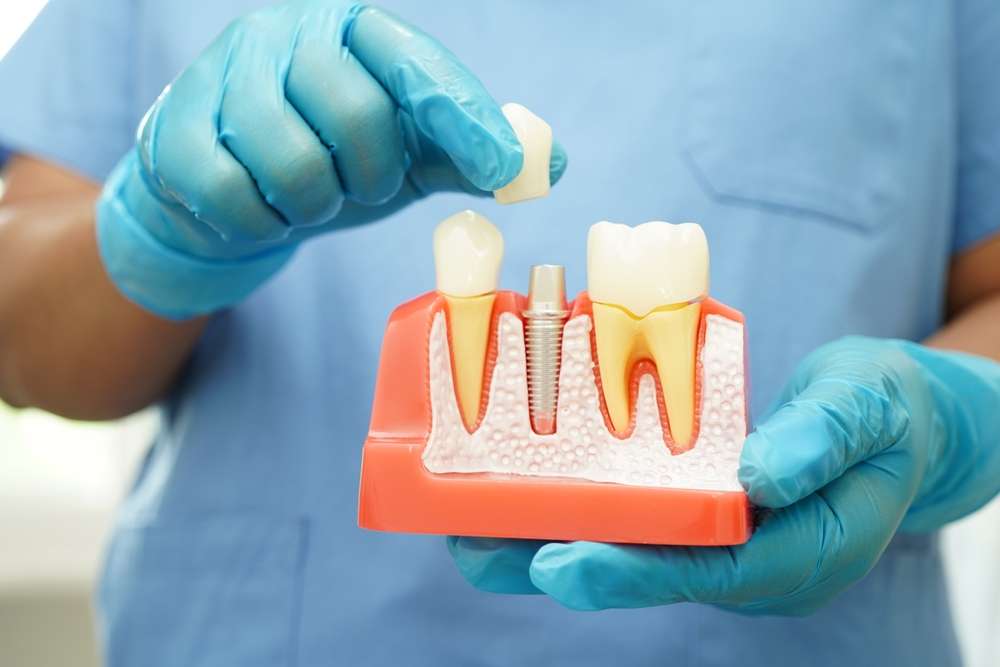Dental Implants: Complete Guide to Benefits, Costs and Options
Dental implants have revolutionized modern dentistry by offering a permanent solution for missing teeth that closely mimics natural tooth structure. Unlike traditional dentures or bridges, dental implants provide a titanium root that fuses with your jawbone, creating a stable foundation for replacement teeth. Understanding the process, benefits, costs, and alternatives is crucial for making an informed decision about this significant dental investment.

What Are Dental Implants and How Do They Work?
Dental implants consist of three main components: a titanium post that serves as an artificial tooth root, an abutment that connects the post to the crown, and the crown itself that resembles your natural tooth. The titanium post is surgically placed into the jawbone, where it undergoes a process called osseointegration over several months. During this healing period, the bone grows around the implant, creating a secure anchor that can support normal chewing forces.
The success rate for dental implants is remarkably high, typically ranging from 95-98% when performed by qualified professionals. This process can take anywhere from three to six months, depending on individual healing rates and bone density. Some patients may require additional procedures like bone grafting if insufficient bone structure exists to support the implant.
Evaluating Dental Implants Benefits Costs and What to Expect
The primary benefits of dental implants extend far beyond aesthetics. Unlike removable dentures, implants preserve jawbone structure by providing necessary stimulation that prevents bone loss. They also protect adjacent healthy teeth since no grinding or alteration of neighboring teeth is required, unlike traditional bridges.
Functionally, dental implants restore nearly 100% of your natural bite force, allowing you to eat all your favorite foods without restriction. They’re also easier to maintain than other tooth replacement options, requiring only regular brushing, flossing, and dental checkups. With proper care, dental implants can last 25 years or even a lifetime, making them a cost-effective long-term solution.
The implant process typically involves multiple appointments over several months. Initial consultation includes comprehensive examination, X-rays, and treatment planning. The surgical placement is usually performed under local anesthesia, with most patients experiencing minimal discomfort during recovery.
Understanding the Investment in Dental Implants and Their Value
When considering the financial aspect of dental implants, it’s important to view them as a long-term investment rather than just an immediate expense. While the upfront cost may seem substantial, the durability and functionality of implants often make them more economical over time compared to alternatives that require frequent replacement or adjustment.
Most dental insurance plans cover a portion of implant costs, typically 10-50% depending on your specific policy. Many dental practices also offer financing options or payment plans to make treatment more accessible. The value extends beyond monetary considerations, as implants significantly improve quality of life, self-confidence, and oral health.
Comparing Dental Implants and Dentures Finding the Best Fit for You
The choice between dental implants and dentures depends on various factors including bone health, number of missing teeth, lifestyle preferences, and budget considerations. Traditional dentures are initially less expensive and don’t require surgery, making them suitable for patients who aren’t candidates for implant surgery due to medical conditions or insufficient bone structure.
However, dentures require regular adjustment, replacement every 5-7 years, and can slip or cause discomfort while eating or speaking. They also don’t prevent bone loss in the jaw. Implant-supported dentures offer a middle-ground solution, providing more stability than traditional dentures while being less expensive than individual implants for each missing tooth.
For single tooth replacement, implants are generally the preferred option among dental professionals due to their preservation of adjacent teeth and long-term stability.
Exploring Dental Implants as a Solution for Missing Teeth
In the United States, approximately 120 million people are missing at least one tooth, and 36 million are missing all their teeth. Dental implants have become increasingly popular as Americans recognize the importance of maintaining oral health and quality of life. The American Academy of Implant Dentistry reports that 3 million people currently have dental implants, with that number growing by 500,000 annually.
Regional variations exist in implant adoption rates, with urban areas typically showing higher utilization due to greater access to specialized dental care. Many states have expanded dental coverage in their Medicaid programs to include some implant procedures, particularly for accident victims or patients with congenital conditions.
Cost Breakdown and Provider Comparison
| Provider Type | Single Implant Cost | Full Mouth Cost | Key Features |
|---|---|---|---|
| General Dentist | $3,000-$4,500 | $40,000-$60,000 | Convenient, familiar provider |
| Oral Surgeon | $3,500-$5,000 | $45,000-$70,000 | Surgical expertise, complex cases |
| Periodontist | $3,200-$4,800 | $42,000-$65,000 | Gum and bone specialists |
| Dental Schools | $2,000-$3,500 | $25,000-$45,000 | Supervised students, lower cost |
Prices, rates, or cost estimates mentioned in this article are based on the latest available information but may change over time. Independent research is advised before making financial decisions.
Additional costs may include bone grafting ($300-$3,000), sinus lifts ($1,500-$3,000), and temporary restorations ($300-$500). Geographic location significantly affects pricing, with coastal areas and major metropolitan centers typically charging 20-40% more than rural or midwest locations.
Making Your Decision About Dental Implants
Choosing dental implants requires careful consideration of your individual circumstances, including oral health status, lifestyle needs, and financial situation. Consultation with a qualified dental professional is essential to determine candidacy and develop an appropriate treatment plan. Factors such as smoking, diabetes, and certain medications can affect implant success rates and may require special consideration or treatment modifications.
The decision should be based on a comprehensive evaluation of all available options, realistic expectations about the treatment timeline and outcomes, and a clear understanding of the long-term commitment involved. While dental implants represent a significant investment, they offer unparalleled benefits in terms of function, comfort, and oral health preservation for qualified candidates.
This article is for informational purposes only and should not be considered medical advice. Please consult a qualified healthcare professional for personalized guidance and treatment.



